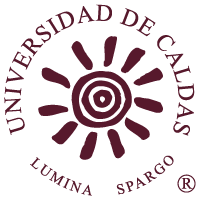| dc.contributor.author | Barker, Stephen | spa |
| dc.date.accessioned | 2014-06-20 00:00:00 | |
| dc.date.available | 2014-06-20 00:00:00 | |
| dc.date.issued | 2014-06-20 | |
| dc.identifier.issn | 0124-6127 | |
| dc.identifier.uri | https://revistasojs.ucaldas.edu.co/index.php/discusionesfilosoficas/article/view/753 | |
| dc.description.abstract | El objetivo es iluminar la verdad acerca de la toma de decisiones a modo de dar luces sobre la relación de las  decisiones. La estrategia no es preguntar lo qué es una decisión; con la esperanza de una teoría metafísica  sobre lo que la naturaleza es. Es, más bien, observar primero el lenguaje de las decisiones. La metáfora  detrás de la toma de decisiones se remite a la agencia. No es absurdo, sin embargo, proponer que el  concepto de toma de decisiones de alguna manera se desprende de una característica que tiene que ver con  la agencia. Esta es la afirmación que explora este trabajo. La manera de hacerlo es a través del expresivismo.  La verdad en la toma de decisiones hace que las reclamaciones, en general, sean reclamaciones en las que  expresamos estados mentales vinculados a nuestra manipulación de conceptos, como la verdad. En  particular, estos expresan la disposición para llevar a cabo derivaciones utilizando reglas de inferencia, en las cuales la introducción de reglas tiene un papel específico. A continuación, se muestra cómo esta teoría  explica nuestras intuiciones sobre la dependencia asimétrica de la verdad sobre el ser. | spa |
| dc.description.abstract | My goal is to illuminate truth-making by way of illuminating the relation of making. My strategy is not to ask  what making is; in the hope of a metaphysical theory about is nature. It’s rather to look first to the language  of making. The metaphor behind making refers to agency. It would be absurd to suggest that claims about  making are claims about agency. It is not absurd, however, to propose that the concept of making somehow  emerges from some feature to do with agency. That’s the contention to be explored in this paper. The way to do this is through expressivism. Truth-making claims, and making-claims generally, are claims in which we  express mental states linked to our manipulation of concepts, like truth. In particular, they express  disposition to undertake derivations using inference rules, in which introduction rules have a specific role. I  then show how this theory explains our intuitions about truth’s asymmetric dependence on being. | eng |
| dc.format.mimetype | application/pdf | eng |
| dc.language.iso | eng | eng |
| dc.publisher | Universidad de Caldas | spa |
| dc.rights | Derechos de autor 2014 Discusiones Filosóficas | eng |
| dc.rights.uri | https://creativecommons.org/licenses/by/4.0/ | eng |
| dc.source | https://revistasojs.ucaldas.edu.co/index.php/discusionesfilosoficas/article/view/753 | eng |
| dc.subject | Agencia | eng |
| dc.subject | prescripciones causales | eng |
| dc.subject | expresivismo | eng |
| dc.subject | manipulación | eng |
| dc.subject | toma | eng |
| dc.subject | verdad | eng |
| dc.subject | la verdad en la toma de decisiones | eng |
| dc.subject | introducción de reglas del conocimiento | eng |
| dc.subject | Agency | spa |
| dc.subject | causal recipes | spa |
| dc.subject | expressivism | spa |
| dc.subject | manipulation | spa |
| dc.subject | making | spa |
| dc.subject | truth | spa |
| dc.subject | truth-making | spa |
| dc.subject | introduction rules grounding | spa |
| dc.title | Expressivism about making and truth-making | spa |
| dc.type | Artículo de revista | spa |
| dc.type | Sección Artículos | spa |
| dc.type | Journal Article | eng |
| dc.identifier.eissn | 2462-9596 | |
| dc.relation.citationendpage | 66 | |
| dc.relation.citationissue | 24 | spa |
| dc.relation.citationstartpage | 41 | |
| dc.relation.citationvolume | 15 | spa |
| dc.relation.ispartofjournal | Discusiones Filosóficas | spa |
| dc.relation.references | Armstrong, David M. Truth and Truthmakers. Cambridge: Cambridge University Press, 2004. Print. | eng |
| dc.relation.references | Barker, Stephen. Global Expressivism. Nottingham: The University Nottingham, 2007. Print. | eng |
| dc.relation.references | ---. “Faultless Disagreement, Cognitive Expressivism, and Absolute, but Non-Objective Truth”. Proceedings of the Aristotelian Society. 2011: 183-199. Print. | eng |
| dc.relation.references | ---. “Truth-Making and the Alethic Undecidability of the liar”. Discusiones Filosóficas. Jul-Dic. 2012: 13-31. Print. | eng |
| dc.relation.references | Barker, Stephen and Mark Jago. “Being Positive about Negative Facts”. Philosophy and Phenomenological Research. Jul. 2012: 117-138. Print. | eng |
| dc.relation.references | Bigelow, John. The Reality of Numbers: A Physicalist’s Philosophy of Mathematics. Oxford: Oxford University Press, 1988. Print. | eng |
| dc.relation.references | Blackburn, Simon. Essays in quasi-realism. New York: Oxford University Press, 1993. Print. | eng |
| dc.relation.references | Cameron, Ross. “How to be a Truthmaker maximalist”. Nous. Sep. 2008: 410-421. Print. | eng |
| dc.relation.references | Gasking, Douglas. “Causation and Recipes”. Mind. Oct. 1955: 479-487. Print. | eng |
| dc.relation.references | Hornsby, Jennifer. “Truth without Truth-making Entities”. Eds. Beebee, Helen and Julian Dodd. Truthmakers. Oxford: Oxford University Press, 2005. Print. | eng |
| dc.relation.references | Jago, Mark. “The Conjunction and Disjunction Theses”. Mind. Apr. 2009: 411-415. Print. | eng |
| dc.relation.references | Kalderon, Mark. Moral Fictionalism. Oxford: Oxford University Press, 2007. Print. | eng |
| dc.relation.references | Molnar, George. “Truthmakers for Negative Truths”. Australasian Journal of Philosophy. Jul. 2000: 72-86. Print. | eng |
| dc.relation.references | Lewis, David. “Things qua Truthmakers”. Ed. Lillehammer, Hallvard and Gonzalo, Rodriguez-Pereyra. Real Metaphysics. Essay in honour of D. H. Mellor. London: Routledge, 2003. Print. | eng |
| dc.relation.references | Price, Huw. “Agency and Causal Asymmetry”. Mind. Jul. 1992: 501-520. Print. | eng |
| dc.relation.references | Read, Stephen. “Truthmakers and the Disjunction Thesis”. Mind. 2000: 67-79. Print. | eng |
| dc.relation.references | Rodriguez-Pereyra, Gonzalo. “Why Truthmakers”. Eds. Beebee, Helen and Julian Dodd. Truthmakers. Oxford: Oxford University Press, 2005. Print. | eng |
| dc.relation.references | ---. “Truthmaking, Entailment, and the Conjunction Thesis”. Mind. Oct. 2006: 957-982. Print. | eng |
| dc.relation.references | Simons, Peter. “Negatives, Numbers and Necessity: Some Worries about Armstrong’s Version of Truthmaking”. Australasian Journal of Philosophy. Feb. 2007: 253-261. Print. | eng |
| dc.relation.references | Woodward, James. Making Things Happen: A Theory of Causal Explanation. Oxford: Oxford University Press, 2005. Print. | eng |
| dc.rights.accessrights | info:eu-repo/semantics/openAccess | eng |
| dc.title.translated | El expresivismo acerca de las decisiones y la verdad en la toma de decisiones | eng |
| dc.type.coar | http://purl.org/coar/resource_type/c_6501 | eng |
| dc.type.content | Text | eng |
| dc.type.driver | info:eu-repo/semantics/article | eng |
| dc.type.version | info:eu-repo/semantics/publishedVersion | eng |
| dc.relation.citationedition | Núm. 24 , Año 2014 : Enero - Junio | spa |
| dc.relation.bitstream | https://revistasojs.ucaldas.edu.co/index.php/discusionesfilosoficas/article/download/753/676 | |
| dc.type.coarversion | http://purl.org/coar/version/c_970fb48d4fbd8a85 | eng |
| dc.rights.coar | http://purl.org/coar/access_right/c_abf2 | eng |





